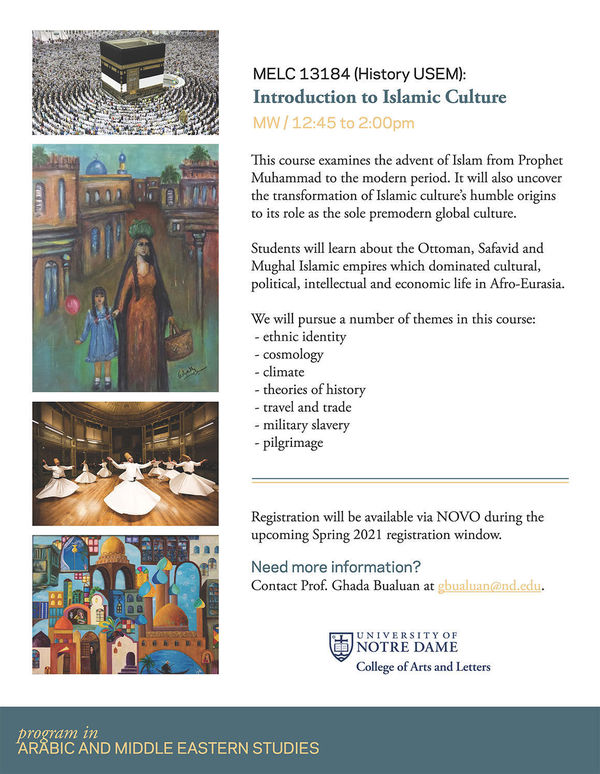MELC 13184: Introduction to Islamic Culture is a History University Seminar being offered in Spring 2021, MW 12:45-2:00 p.m. by Professor Hussein Abdulsater
Islamic culture rose from its humble origins in 7th-century Arabia to become the sole premodern global culture. But how was this astonishing transformation accomplished?
This course examines the advent of Islam from the career of the Prophet Muhammad to the modern period. We first approach Islam in relation to the late antique Near Eastern context from which it emerged, becoming heir, with Christianity, to the twin legacies of prophetic monotheism and philosophical rationalism. We then turn to the process whereby Muhammad’s apocalyptic message was turned into a high imperial project—that is, Islam’s transformation from religion to civilization. We then trace the emergence of Islam as a world culture during the 10th-16th centuries. In this period, Islam offered increasingly flexible and open-source models of knowledge, government and spirituality. Following that, we examine the great early modern Islamic empires—Ottoman, Safavid and Mughal—, which dominated and mediated much of the cultural, political, intellectual and economic life of Afro-Eurasia until the 18th century.
This chronological progression aside, we will pursue a number of thematic digressions along the way: ethnic identity, cosmology, climate, theories of history, travel and trade, military slavery and pilgrimage. All these played a historically crucial role in creating and sustaining global Islamic culture from the 12th century to the present.
